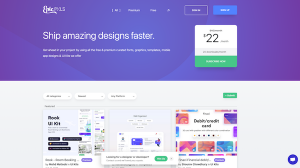Data-Sharing Customers Want Benefits, Not Just Transparency
by Sean Hargrave , Staff Writer, February 16, 2018
Transparency is the key to getting people to become comfortable with sharing their data with organisations online. That’s the takeaway the press has taken from the latest DMA and Acxiom research into attitudes surrounding data sharing.
It’s obviously a huge issue, and it taps straight into the obvious looming deadline of GDPR becoming law on May 25th. So it’s an important observation, but it’s not the only one. Looking over the entire report, it becomes very clear that what consumers are actually saying, apart from “give us transparency” is “give us something back.” The “what’s in it for me” brigade are rising to the surface. That would be my major takeaway.
You see, after ploughing through dozens of very interesting charts, you begin to realise that virtually nothing has changed over the past five years covered by the report. People have become a little more accepting of sharing data, but ultimately you have the same split repeated throughout the period. Around half of people are cautious but willing to share their data, and the rest of the market is evenly split between those who aren’t concerned at all and those who are fundamentally opposed to it.
If there is one interesting chart to look at, it’s one halfway through the report which shows more than three in four of us consumers, at 78%, believe the current way the internet works — through them sharing data with companies — favours those businesses more than it does the customer.
The ICO has been referring to this belief as the”‘data sharing tension,” and rightly so. People realise they put their personal information at risk when it is handed over to companies. According to the ICO, the big issues for the vast majority of people are falling prey to hackers as well as receiving unsolicited emails and calls.
So when you delve a little deeper, beyond the headlines, into the latest DMA report you find that people are understandably concerned about sharing data, and transparency is a big issue they look for.
But hang on a minute — scoring exactly the same with near nine out of ten responses come a plethora of other factors. These include explaining what the benefits are to the consumers and explaining these up front in a clear and easy-to-understand statement.
Sure, this sounds like a transparency message that is being repeated, but there’s a subtle difference. Consumers don’t just want to be told their data is being stored — they want to know up front what’s in it for them. More than half of the UK online population, and two in three men, see their data as a valuable asset that they should be able to use to leverage better offers and deals.
Trust is still far and away the most important factor that prompts people to share information with brands they know. However, bringing up the rear in second place, for a third of consumers, is the encouragement of getting a better deal in return for sharing their data.
It’s not a choice between the two that people are looking for. They have always shared data with organisations they trust and they require transparency to know what’s going to happen to it.
Mark my words — the new development here is people understanding that their data powers the services they use and helps publishers enable marketers to target them better so ad revenues are increased and budgets are used more efficiently.
The public gets how the internet operates, and more than three in four say it’s working too much in favour of the companies who store and use their personal data. The big takeaway of this DMA report is that consumers are alert to this and they’re looking to get something back.
Trust and transparency are a given. However, some “skin” in the game, some form of reward, that’s the new factor that digital marketers should be waking up to.
(32)
Report Post





